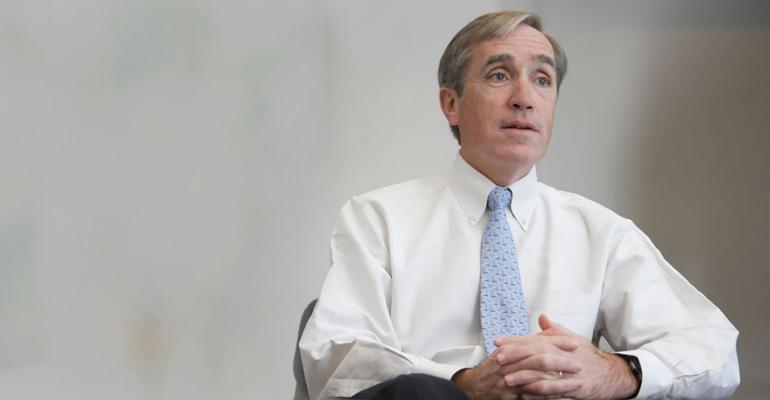Vanguard has come to dominate the world of consumer investing with its emphasis on diversification and low-cost investing. But Jack Brennan, the company’s former chief executive and board chair, does see one area where it’s worthwhile to spend a bit of money—getting professional financial advice.
Brennan, now chairman emeritus at Vanguard, is the author of More Straight Talk on Investing, a new book aimed at investors of all ages. He offers especially valuable advice for young people on why it’s so important to get an early start on saving. I spoke with him recently on a range of topics, including why the financial media’s emphasis on the stock market makes no sense, how to get more people saving and why retirees really should have a professional advisor.
Mark Miller: Just over half of Americans say that they own stocks, and the figures are a lot lower than that for people of color. But you could hardly tell that from the way that the media obsesses over the daily gyrations of the market, stock picking investment strategies and the like. What do you think about the way that the media covers the markets?
JB: Well, there are two elements to that question. First, I agree that the frenetic coverage of the market is unnecessary. I get the fact that the media has to fill pages and time. But the idea that when I boot up my computer at six in the morning, I need to know what futures are doing today is crazy—and it's harmful.
But I do wonder whether the data on stock ownership is correct, because one of the best things that's happened to democratize investing has been the advent of the universal IRA, and very importantly, the universal 401(k). We haven't done enough with policy; and we should make it easier for a small employer or individual to save. But I'm hopeful that there's a greater participation than you might think.
MM: A substantial part of the workforce isn’t covered by a workplace retirement plan. There are a number of potential reasons, but do we have structural issues that make it difficult to have more widespread participation in saving programs?
JB: There's no question. One of the things that we need to keep doing as a country is incentivizing and rewarding (via preferential tax treatment) saving for retirement—not today's spending. It's a national policy question that we've made progress on but not nearly what we need to. And I continue to hope we will make it easier for small employers to offer plans. Maybe we need to have matching contributions that come from public money. I think we can make a lot more progress if we can muster the national will to do it.
MM: I'm always interested in the question of who needs professional financial planning advice and who does not. You make the case in favor of advice, and that the case gets stronger as the complexity of your financial situation rises. Can you expand on why you think retirees really should have professional help?
JB: In the book, I urge people to think of themselves as financial entrepreneurs—the business you’re running is your future retirement security, when you will no longer have an income stream from your employment.
There are so many varieties of advice available today. You can get a one-time plan done and update it periodically—that's a great solution. You can be invested through a robo advisor—you can only text them, you can't talk to them. And that's pretty inexpensive. You can have a robo with a live body or you can have a family office, whatever you want along that spectrum. So the choices are there for one-time, light touch, heavy touch and various price points, all of which are lower than they were years ago. And I think of this as insurance, and it’s what most of us at a certain age should do.
I do think it's worth hiring a consultant at some form or other either embedded or one time to help you think through the issues.
MM: What are your thoughts about the pandemic—do you think it will have any long-term impact on behavior, in terms of the way people think about saving?
JB: My guess is not really, that this has been compressed enough. That, you know, you hope a year from now we feel like we're in a normal economy. And so do I think there'll be a structural change in savings rates? No, personally, I could be wrong. I hope I'm wrong. But I don't I don't see a long tail effect of the pandemic. The bigger issue is, you know, whether it's credit card debt or something else, does it defer your ability to participate the way you had been or want to? That's something that I think will be real for a few years, but it'll burn off, assuming we get back to the same kind of economic picture we had going into the end of the pandemic a year and a quarter ago at this stage.
I'm a huge believer in using rolling longer-term periods to observe trends, whether they’re investment or societal. But I suspect that, with luck, if we look back 10 years from now, we'll see blips, but we’ll be on a favorable trend in other ways. On a secular basis, the cycles will be observable but not permanently disadvantageous.
This interview has been edited for length and clarity. The full conversation is available on this episode of my RetirementRevised podcast.
Mark Miller is a journalist and author who writes about trends in retirement and aging. He is a columnist for Reuters and also contributes to Morningstar and the AARP magazine.








